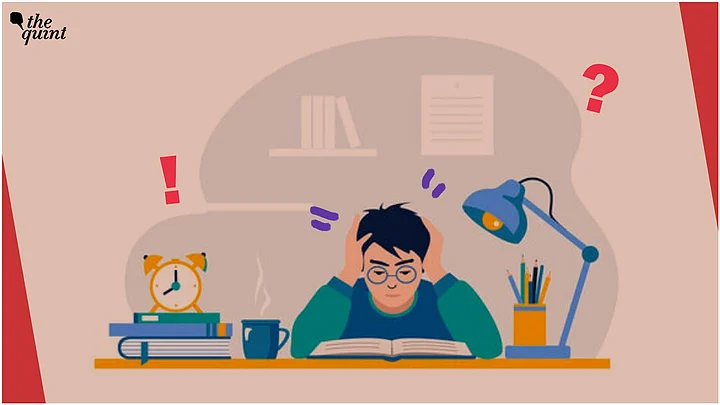The class 10 and 12 board exams conducted by various boards recently concluded and students across the country heaved a sigh of relief. I bet everyone reading this knows about the anxiety a school examination can have on a young mind. As a teacher, I’ve seen many students, petrified by the thought of not doing well enough in their tests. They pull all-nighters, skip their meals and worry themselves sick.
Surely, we’re going wrong somewhere. Student suicides are going up steadily. Though there are other factors linked to higher rates of suicides and worsening mental health among the youth today, academic stress is high up on the list.
In a world that is constantly telling a young person to live up to certain standards set by society, we need to help our children find their unique path, rather than push them into the rat race.
Exam Stress Takes the Focus Away From a Child’s Ability To Shine
It's not like adults don’t understand this problem, but most cannot envision an alternative. I recently told a parent who expressed concern about his child’s declining grades how he should be glad about the progress his child was making in other areas. She had integrated very well with her class and overcome her shyness, she had started reading for pleasure and liked to talk to me about books, she was also was taking an active interest in playing football which is rare among girls. His reply was, “All that is okay, but what about her grades?” It was clear where his priorities lay.
A fellow teacher opined, “We understand the system (of examinations) is rather oppressive, but what alternatives do we have? The way to a good life is through a good college. And to get into a good college you need good grades”. "We need to be practical” another child’s mother who is a teacher herself, quipped in. “It’s for their own good, they will realise this more sooner than later,” she said.
Where is the child in all of these considerations? Isn’t the child supposed to be at the centre?
Then there is another set of arguments along the lines of “The system works because it makes the kids ready for real life”. Which real life challenges are these exams preparing our children for? Recently, a survey conducted by NCERT among four lakh Indian school students revealed that 80% of school students suffer from anxiety due to exams and results.
The report observed that “the secondary stage (secondary school) is marked by challenges of an identity crisis, increased sensitivity towards relationships, peer pressure, fear of board examination, anxiety and uncertainty experienced by students for their future admissions, career, among others,". Should we not be questioning a system which is responsible for instilling fear in the minds of the majority of our students?
Perhaps it's too daunting a task. A solution to this complex issue will require an overhaul of the education system—our pedagogy, curriculum, and methods of assessments, will have to change. In addition, the process of college admissions might need some tweaks. Corporates and govt employers will have to change their screening criteria for jobs.
What Systemic Changes Can Be Effected?
Can we find some solutions in the interim so assessments become less painful? A child performs considerably better when she’s not stressed. Parents should act as allies of their children against a system which is rigged against the majority. They should acknowledge that the system has problems and encourage their children to do the best they can, without having unreasonable expectations. What they should most definitely avoid is comparing their child’s academic performance with another‘s.
From the educators' and policymakers' end, there are a few solutions that come to mind. A simple tweak could be to have open-book exams which test the application of concepts instead of simple recall of knowledge.
Another way to ease the pressure, though this requires large-scale structural changes, is to do away with the system of classes. Instead of clubbing students together based on age, we make smaller groups based on their knowledge levels or even their own interests. This way children learn at their own pace and take the exams when they feel ready. Of course, it means some students spend a few years longer in school and others graduate sooner based on their grasp of the material. Rohit Dhankar from Azim Premji University has written in detail about such a method here.
We need to urgently find alternatives to this coercive, hypercompetitive, and exploitative system of examinations. Otherwise, we are sucking the joy out of learning and doing our children a great disservice.
(Shamayel Zaidi is a teacher and a Teach for India alumnus. Views are personal.)
(At The Quint, we question everything. Play an active role in shaping our journalism by becoming a member today.)
